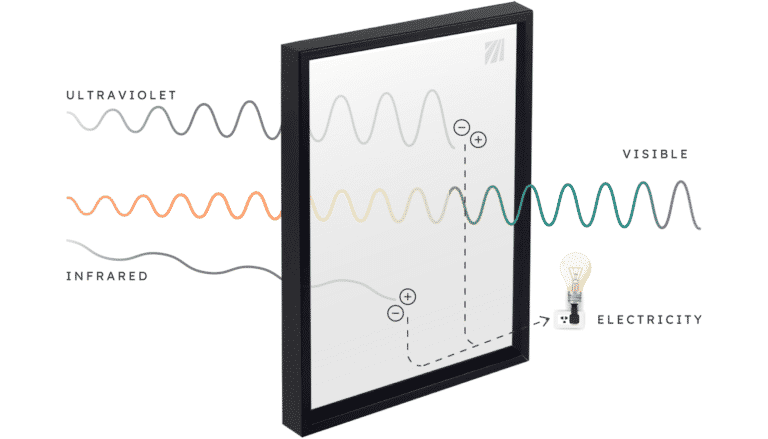Ubiquitous Energy is making headlines after raising a substantial amount of cash that it will use to transform skyscraper windows into electricity generators.

The company has just closed on $30 million worth of funding from the consumer window and door manufacturer Andersen Corp., bringing its total amount raised to date to $70 million.
Ubiquitous Energy has created a transparent coating for windows that works similarly to solar panels, transforming the sunlight that hits the glass into solar power. The coating contains microwires that deliver the energy to electrical systems where that energy can then be used, CNBC reported. The company is hoping to begin mass producing its window coating by 2024.
The solar window panels will cost around 30% more than regular windows do, but Ubiquitous Energy says customers will easily be able to offset those costs with energy savings.
“We’ll be able to make floor to ceiling glass,” Ubiquitous Energy CEO Susan Stone told CNBC. “We can turn skyscrapers into vertical solar farms.”
Ubiquitous Energy said its solar glass panels are currently only around half as efficient as traditional solar panels at generating electricity, but it believes its technology ultimately has the potential to achieve around two-thirds of their efficiency.
Not surprisingly, Ubiquitous Energy also believes its product is suited to the residential real estate market. Andersen said it was most impressed with the transparency of the windows, which allows them to be fitted unobtrusively into any home.
“While there are competing solar window technologies under development, most have tradeoffs in transparency, color, viewing area obstruction, haze, or energy efficiency, making it challenging for consumers to accept them as alternatives to standard windows,” the company told CNBC.
Stone agreed that transparency is key to making the technology mainstream. She said solar windows must be indistinguishable from traditional glass if consumers are going to embrace them. “Aesthetics is our guiding light,” she added.
Ubiquitous Energy is nothing if not ambitious, saying it hopes to have installed one billion square feet of solar windows globally by 2050.
Is it possible for the small investor to invest in Ubiquitous Energy?